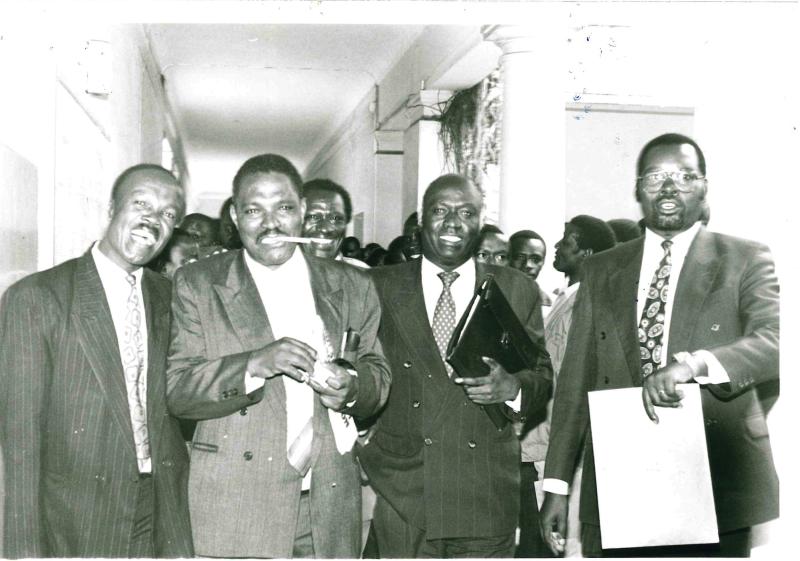×
The Standard e-Paper
Stay Informed, Even Offline

John King’ori (second left) with his supporters outside the High Court in 1994. [File, Courtesy]
John King’ori Mwangi, colourful former Nairobi mayor, died last week. For years, King’ori was the epitome of what defined leadership in the capital.